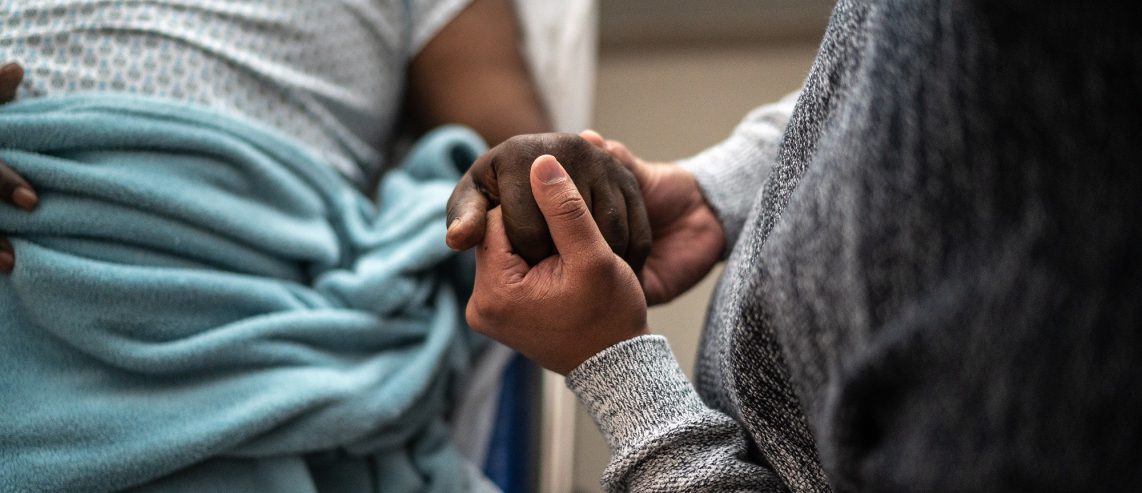In September 2022, the Organ Procurement and Transplantation Network (OPTN) announced that the U.S. has performed one million organ transplants, more than any country in the world. “UPMC is glad to contribute to this historic milestone, and we hope to keep advancing the field so transplantation is an accessible option for those with organ failure,” says Abhinav Humar, MD, division chief, transplantation surgery at UPMC. The field of transplantation has advanced so rapidly since the first organ transplant in 1954 that half of all transplants performed in the U.S. have occurred in the past 15 years.
UPMC Transplant Services
Established in 1981, UPMC Transplant Services has performed more than 20,000 organ transplants, including liver, kidney/pancreas, small bowel, liver/small bowel, heart, heart/lung, double-lung, single-lung, and multiple-organ transplants.
UPMC celebrated 40 years of transplant leadership in 2021 and performed more than 500 adult and pediatric organ transplants that year. As one of the leading organ transplant centers in the nation, and home to one of the oldest and largest transplant programs in the country, UPMC is dedicated to providing transplant care to patients with end-stage organ failure.
“Patients from across the globe seek UPMC for their transplant care, and we’re proud that our experience and expertise provide individuals with a second chance at life,” says Dr. Humar.
Due to advancements made in antirejection medication and transplantation – some dating back to Dr. Thomas E. Starzl’s work – patients can experience less rejection of their new organ because the body recognizes it as its own. UPMC’s antirejection research has revealed new possibilities that help make organ transplant a standard of care all over the world.
Never Miss a Beat!
Subscribe to Our HealthBeat Newsletter!
Thank you for subscribing!
You can now select the specific newsletters you'd like to receive.
You are already subscribed.
Subscribe to more newsletters in our email preference center.
Sorry, an error occurred. Please try again later.
Get Healthy Tips Sent to Your Phone!
Living Donor Transplant at UPMC
UPMC strives to reduce waiting list mortality and contributes to this mission by increasing the number of donor organs available through living donation.
We discuss living-donor liver and kidney transplant with each patient who will benefit and offer it as a frontline treatment option. As a result, UPMC has performed more than 2,400 living-donor liver and kidney transplants. “Living donors are an important part of our transplant program,” says Dr. Humar. “They give patients an opportunity to experience improved long-term outcomes, a more timely transplant, and quicker recovery times when compared to deceased organ donation.”
To increase access to living donation beyond Pittsburgh, UPMC offers transplant evaluation clinics in northwestern Pa., central Pa., and north central Pa., so those with advanced liver or kidney disease are never far from the care they need.
UPMC Living Donor Champion Program
The UPMC Living Donor Champion Program offers support and resources so recipients can find a living donor. This program encourages recipients to identify a Champion – someone who is willing to provide emotional support for a loved one on the transplant waiting list and take the lead to find a suitable living donor. UPMC is one of the only centers in the country with a living donor ambassador on staff who provides one-on-one support and print, digital, and online educational resources.
The Living Donor Champion Support Facebook group provides additional support and education for UPMC patients and their Champions.
UPMC Children’s Hospital Partnerships
In addition to providing nationally recognized expert care in Pittsburgh through deceased and living donor transplantation, UPMC Children’s Hospital of Pittsburgh also partners with University of Virginia Children’s Hospital and AdventHealth in Florida to expand access to pediatric transplant expertise. Both partnerships rely on the experience of UPMC Children’s surgeons and other experts to achieve consistently outstanding care throughout the eastern United States.
“Our liver transplant program at UPMC Children’s Hospital of Pittsburgh increases access and transplant expertise in areas where these types of services were not previously as available,” says George Mazariegos, MD, FACS, chief of pediatric transplantation at UPMC Children’s Hospital of Pittsburgh. “These partnerships have brought vital health care services to children in multiple states and provide quality health care options for children and their families.”
UPMC and Donate Life America
Through these efforts, we join Donate Life America and community partners to highlight organ donation as a selfless act with the potential to save eight lives and help up to 75 more. Each person who registers to be an organ donor through this initiative can give the more than 100,000 individuals on the waiting list hope for a second chance at life and help make transplant possible.
UPMC and Donate Life America carry this partnership year-round and collaborate on educational content to improve access to transplantation. The UPMC and Donate Life America Living Donor Transplant Facebook page provides information about living donor transplant at UPMC and shares stories from those who have been through the transplant journey.
To learn more about UPMC Transplant Services, visit our website.
Editor's Note: This article was originally published on , and was last reviewed on .
About Transplant Services
For more than four decades, UPMC Transplant Services has been a leader in organ transplantation. Our clinicians have performed more than 20,000 organ transplant procedures, making UPMC one of the foremost organ transplant centers in the world. We are home to some of the world’s foremost transplant experts and take on some of the most challenging cases. Through research, we have developed new therapies that provide our patients better outcomes — so organ recipients can enjoy better health with fewer restrictions. Above all, we are committed to providing compassionate, complete care that can change – and save – our patients’ lives. Visit our website to find a provider near you.

